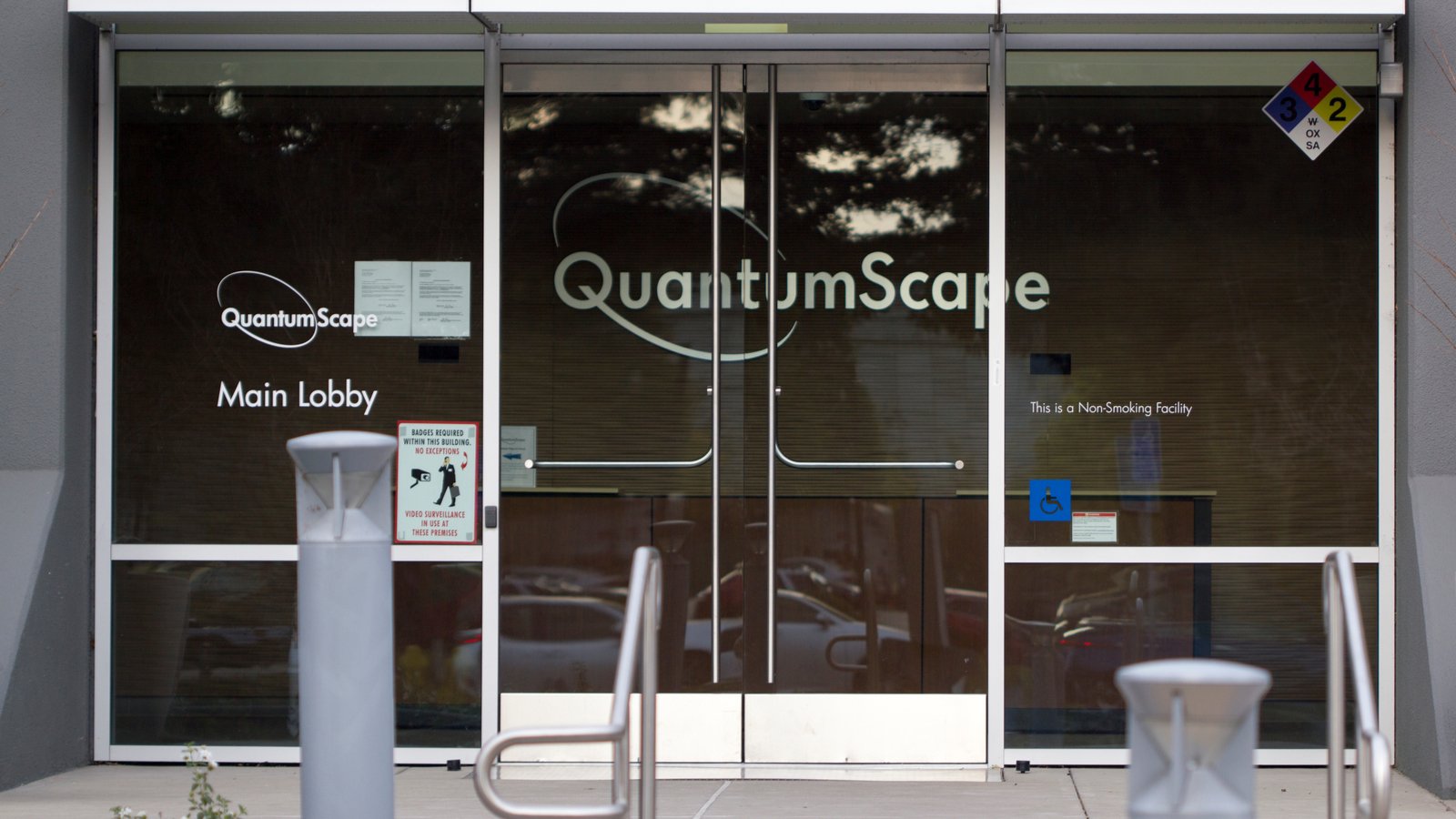Lithium-ion batteries are better than lead-acid batteries because they are more efficient and offer greater capacity. Solid-state batteries go one better, offering even more capacity which allows for longer distances traveled on a single charge. They are also lighter, safer and offer faster charge times. However, making them at scale to power a vehicle is the challenge. QuantumScape (NYSE:QS) stock is developing solid-state batteries that will do just that but it is still in the early stages.
Its prototypes look promising but it costs money to bring it to fruition and QuantumScape is burning through cash at a rapid pace.
While the battery startup is not going under anytime soon, it needs a win shortly to boost investor confidence it can make it to the commercialization stage. Here’s why I think investors should take a wait-and-see approach with QuantumScape.
There is still time but the clock is ticking
At the end of 2023, the battery maker had $1.1 billion in cash and negative free cash flow of $325 million over the past year. At that cash burn rate, QuantumScape has about three years or so before it runs out of money.
Yet the company’s cash and equivalents are down over 80% from their 2021 high. Expenses are only going to grow as it moves towards commercialization. It will need additional cash injections from either a financial back or by hitting the debt and equity markets to raise more money.
Volkswagen (OTCMKTS:VWAGY) is a big backer investing over $300 million in QuantumScape but recently signaled it is growing impatient. It was in talks with France’s Blue Solutions division of Bollore (OTCMKTS:BOIVF) about redesigning the company’s electric bus solid-state batteries for cars. It’s likely not an easy switch but perhaps easier than going from nothing to something as QuantumScape is attempting.
A roadmap to nowhere
The problem may be QuantumScape’s timeline for commercialization. There is none. Nothing concrete, anyway.
The battery maker wants to ship its Alpha-2 samples for testing this year and transition production to its Raptor stage battery for testing. Assuming it is successful, it eventually will transition to Cobra stage testing in 2025 for higher volume testing. Eventually QuantumScape wants to get to its commercial product, QSE-5.
At best, we’re looking at a 2026 to 2027 timeframe for this to happen. That runs right up against the battery maker’s diminishing cash hoard. It also can’t afford any mistakes along the way. Also, if Blue Solutions can achieve faster product development, QuantumScape might also lose its biggest financial backer.
A changing market
There are other hurdles facing QuantumScape, namely competition. Toyota Motor (NYSE:TM) is developing a trio of options, including lithium-ion, solid-state and hydrogen fuel cells. China’s BYD (OTCMKTS:BYDDY) is developing a sodium-ion battery. Solid Power (NASDAQ:SLDP) is also working on solid-state batteries and has backing from Ford (NYSE:F) and BMW (OTCMKTS:BMWYY).
The EV market is also changing. Apple (NASDAQ:AAPL) just abandoned its plans to develop an EV, Volvo (OTCMKTS:VLVLY) withdrew its financial support for Polestar (NASDAQ:PSNY) and several other automakers dropped or delayed their plans for further EV production.
As EV demand slows, the financial backers of battery makers will become more circumspect about how much money they invest.
Go slow with QS stock
It is why QuantumScape is potentially a high-risk, high-reward stock. If it can make it to the finish line investors might be well-rewarded for their patience. But it is not guaranteed. Too many investors think taking on the risk means they will reap the rewards rather than the risk of failure is greater than that of success.
The type of battery QuantumScape is building is necessary for a thriving EV market. QS stock, though, may not be the best vehicle to deliver it. Investors would be better off watching from the sidelines. If QuantumScape can make it over the threshold there will be plenty of time to invest afterwards and still reap substantial rewards.
On the date of publication, Rich Duprey did not hold (either directly or indirectly) any positions in the securities mentioned in this article. The opinions expressed in this article are those of the writer, subject to the InvestorPlace.com Publishing Guidelines.
